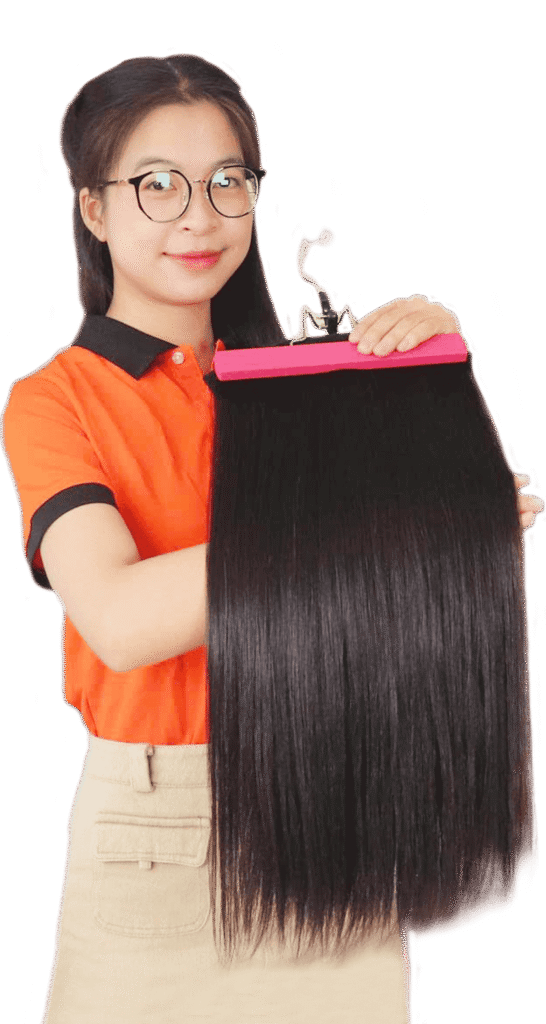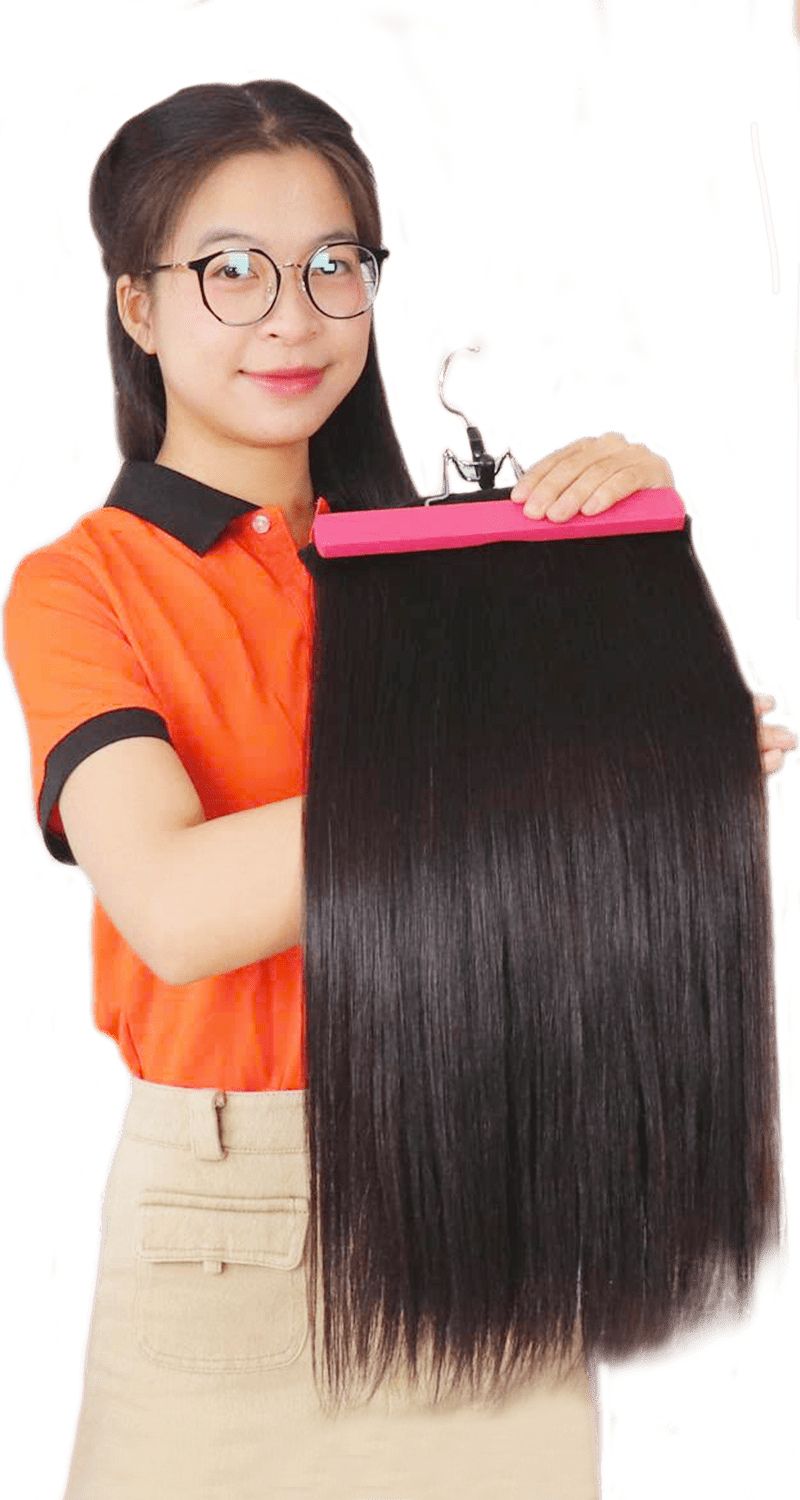In the realm of hair extensions, the battle between natural and synthetic options has long captivated the hearts and minds of fashion enthusiasts and hair enthusiasts alike. The desire for luscious, voluminous locks has fueled the popularity of hair extensions. Stepping into the realm of hair extensions can be a perplexing journey, as each option possesses its unique set of attributes and drawbacks. So the age-old question remains: human hair vs synthetic hair extensions – which one is better? Join us as we delve into the captivating world of human hair versus synthetic hair extensions, uncovering the secrets that will help you make the best choice for your individual style and needs.
I. Human Hair vs Synthetic Hair Extensions: What Are They?
Human hair extensions are celebrated for their authentic look and feel, while synthetic counterparts boast an array of vibrant colors and budget-friendly allure. Human hair extensions are made from a variety of types from Asian to Indian to European. Although there are different grades of human hair depending on how the hair has been collected, treated, and sorted, for the sake of this article we will talk about Remy human hair as this is the most affordable and most common type of human hair used for hair extensions, wigs, and other hair pieces.
1. What Is Remy Human Hair?
Remy human hair is considered the gold standard in the hair extension industry due to its impeccable characteristics and natural appearance. What sets Remy human hair apart is the meticulous and careful way in which the hair is collected and processed. Remy hair refers to the hair of which the cuticle (outermost layer) has been kept intact, not stripped, and aligned in one direction. It also offers a smooth, soft texture that mimics natural hair, allowing for styling versatility and a natural appearance.
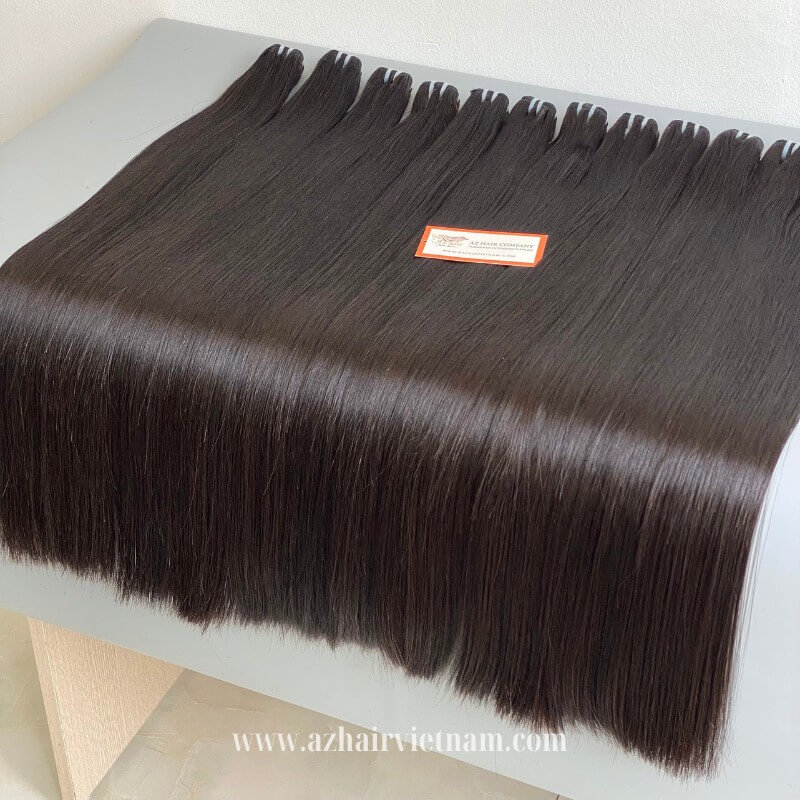
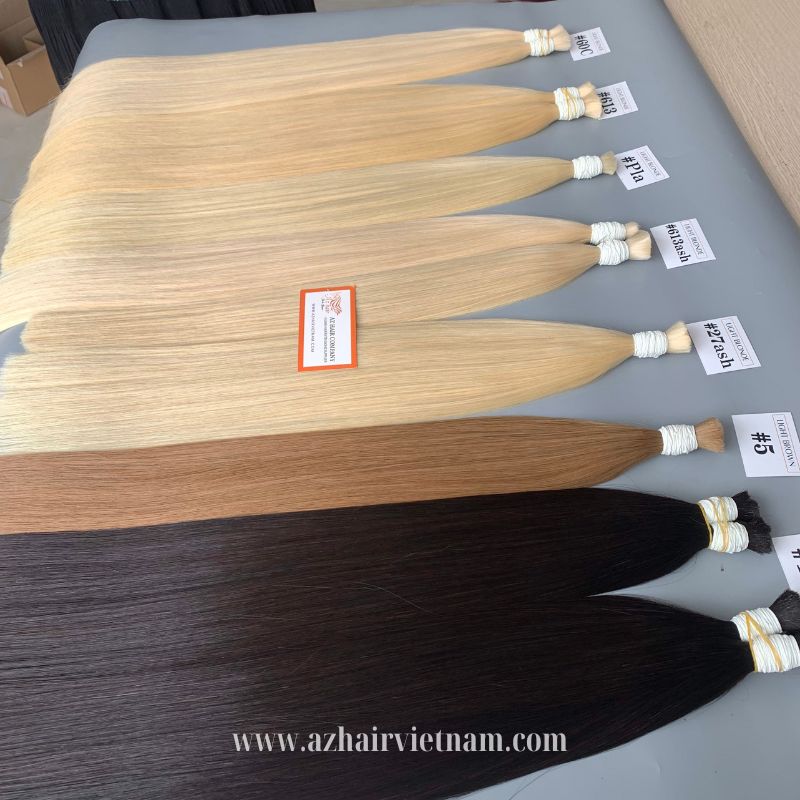
2. What Is Synthetic Hair?
Synthetic hair extensions are hair extensions made from synthetic or man-made fibers rather than natural human hair. They can be made from acrylic, nylon, or polyester, which are heated and sent through tiny micro tubes to mimic the look and feel of hair strands. These fibers are specially designed to mimic the appearance and texture of real hair, allowing individuals to achieve various hairstyles without using natural hair.
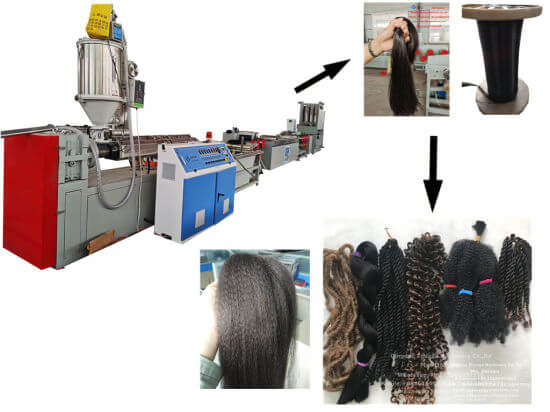
Because synthetic hair is made from artificial material, it may never truly look like human hair, can be stiff or move differently, have an unnatural shine, and be more noticeable as a hairpiece. Synthetic hair extensions have become increasingly popular over the years due to their affordability and wide range of colors and styles.
II. Human Hair vs Synthetic Hair Extensions: Pros & Cons
Comparing human hair and synthetic hair extensions involves understanding their respective pros and cons. Each type of hair extension offers unique benefits and drawbacks, catering to different preferences, budgets, and styling needs. Let’s explore the pros and cons of human hair and synthetic hair extensions:
1. Human Hair Extensions
Pros:
- Natural Look and Feel: Human hair extensions look and feel incredibly natural because they are made from real human hair. They blend seamlessly with your natural hair, making them virtually indistinguishable.
- Styling Versatility: Human hair extensions can be styled using heat tools like curling irons, straighteners, and blow dryers. You can also dye and color them to match your desired look.
- Longevity: With proper care, human hair extensions can last for an extended period, sometimes up to a year or more, making them a durable and cost-effective choice in the long run.
- Tangle-Free: Human hair extensions, especially Remy human hair, are less prone to tangling and matting as the cuticles remain intact and aligned in one direction.
Cons:
- Higher Cost: Human hair extensions tend to be more expensive than synthetic hair due to their premium quality and natural origin.
- Maintenance: Human hair requires more care and maintenance, similar to natural hair. This includes regular washing, conditioning, and styling upkeep.
2. Synthetic Hair Extensions:
Pros:
- Affordability: Synthetic hair extensions are generally more budget-friendly than human hair, making them a cost-effective option for temporary transformations or experimenting with different styles and colors.
- Variety of Colors and Styles: Synthetic hair offers a wide range of colors and styles, including bold and vibrant options that may not be readily available in natural human hair.
- Pre-Styled: Synthetic hair extensions come pre-styled and retain their shape even after washing. This eliminates the need for extensive styling, saving time and effort.
- Low Maintenance: Synthetic hair requires minimal upkeep, and it is less susceptible to frizz and humidity-related issues.
Cons:
Less Natural Appearance: Despite improvements, synthetic hair may not look as natural as human hair, as it lacks the natural movement and shine of real hair.
Limited Heat Resistance: Synthetic hair cannot withstand heat styling, such as curling or straightening, as it may melt or become irreversibly damaged.
- Shorter Lifespan: Synthetic hair extensions have a shorter lifespan compared to human hair, typically lasting a few months, depending on how well they are maintained.
III. Human Hair vs Synthetic Hair: How To Distinguish
This is the only surefire way to determine whether the hair is 100% human hair or synthetic. Simply take a couple of long strands of hair and hold them above a flame. It’s also a good idea to cut a small bundle of hair to avoid accidentally damaging more hair. When the hair starts to burn, it is time to observe carefully. During the burning process, observe how it burns, how it smells while burning, how easily it can be extinguished, and what kind of ash it leaves behind.
- Human Hair, as a protein fiber, will burn briefly and will not continue to burn unless you hold it to the fire. Besides, the brief flame is orange, then the hair will leave dark ash after charing and also will turn to powder when crushed. Don’t forget the smell is similar to the odor smells of burning flesh or burning feathers.
- Synthetic hair is either nylon fibers or polyester fibers. They usually will burn rapidly and then melt. The sputtery flame is orange and black smoke. What is the most different is that it will melt, drip, then become sticky to the touch before forming ash of hard black beads.
By noticing these changes, you can tell what hair extensions you purchase are made of, thus judging the quality of your hair extensions.
IV. Human Hair vs Synthetic Hair Extensions: Which One Is Better?
Both types of hair extensions have their own advantages and disadvantages, so it’s essential to consider what matters most to you. The choice between human hair and synthetic hair extensions depends on your priorities, budget, and styling preferences. Here are some key considerations to help you make the right decision:
1. Human Hair vs Synthetic Hair Extensions: Appearance & Natural Look

Human hair extensions look more natural and blend seamlessly with your own hair. They have a natural texture, shine, and movement, making them difficult to distinguish from your real hair. Synthetic hair, on the other hand, though has improved over the years, but it may still look slightly artificial and have a different texture compared to natural hair.
2. Styling Options:

With human hair extensions, you can style them just like your natural hair. You can use heated styling tools (curling irons, straighteners) and hair products without damaging the hair while synthetic hair has limitations when it comes to heat styling. High temperatures can melt or damage the fibers, restricting your styling options.
3. Human Hair vs Synthetic Hair Extensions: Durability & Lifespan
Human Hair: Human hair extensions generally last longer than synthetic ones, especially if they are well-cared for. With proper maintenance, they can last for months and can be reused. In contrast, synthetic hair extensions have a shorter lifespan and may need to be replaced more frequently, especially if used regularly.
4. Maintenance and Care:
Human hair extensions require similar care to your natural hair. You need to wash, condition, and style them regularly. Using quality hair care products is essential to keep them looking their best. In comparison with human hair extensions, synthetic hair requires less maintenance, but it is essential to follow the care instructions provided by the manufacturer. They are more prone to tangling and frizzing.
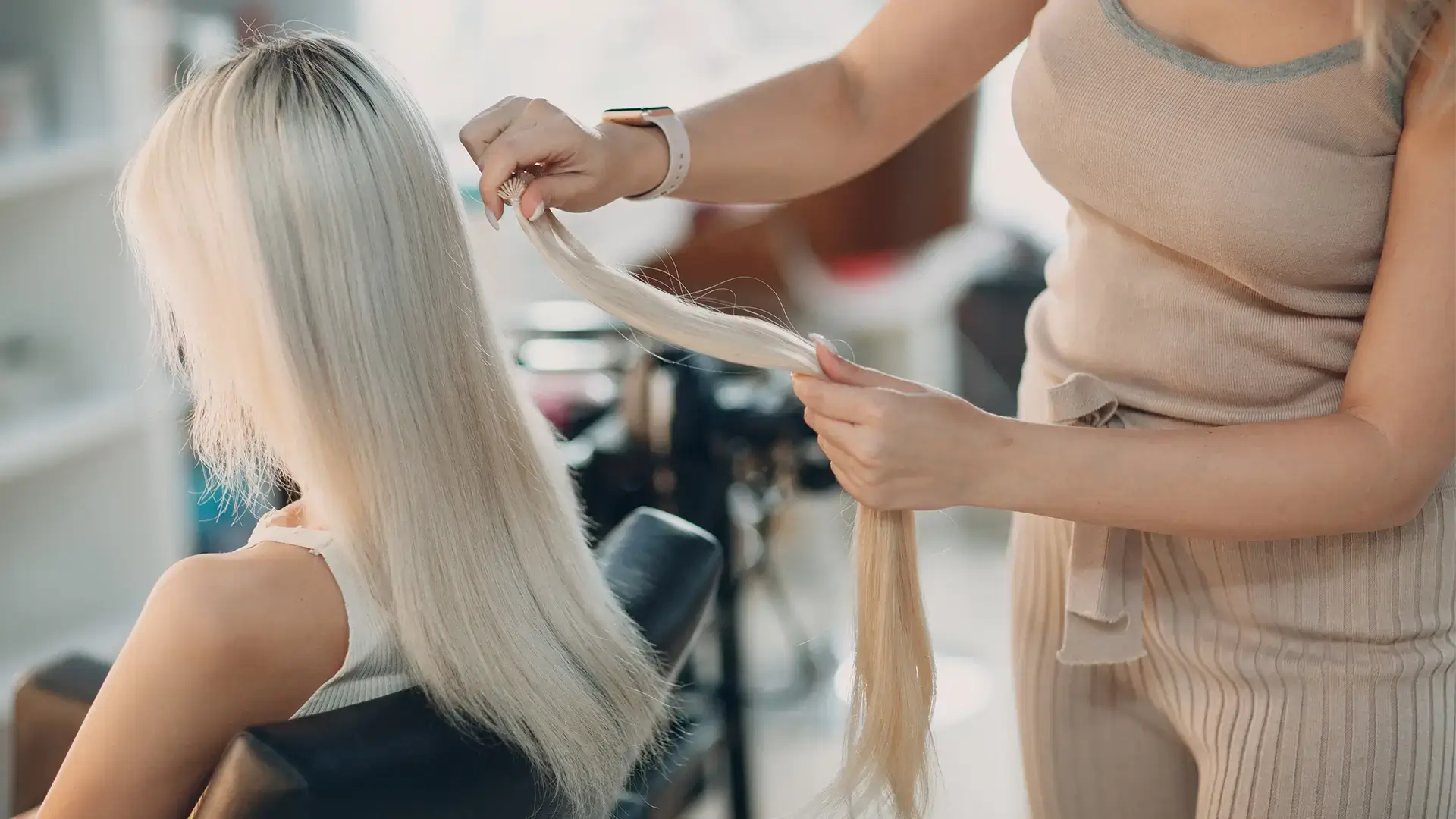
5. Human Hair vs Synthetic Hair Extensions: Cost
Human hair extensions are generally more expensive than synthetic hair extensions due to their higher quality and natural characteristics. Synthetic hair extensions are more budget-friendly, making them a popular choice for those on a tighter budget.
V. Conclusion
The question of whether human hair or synthetic hair extensions are better is subjective and depends on individual preferences, needs, and budget. If you desire a natural look, styling versatility, and long-term investment, human hair extensions are the ideal choice. On the other hand, if you’re looking for a more budget-friendly option with easy maintenance and variety in styles and colors, synthetic hair extensions may be the better fit for your needs.


 BEST SELLING PRODUCTS
BEST SELLING PRODUCTS Wig Hair
Wig Hair WHOLESALE
WHOLESALE Contact us
Contact us Sale Events
Sale Events